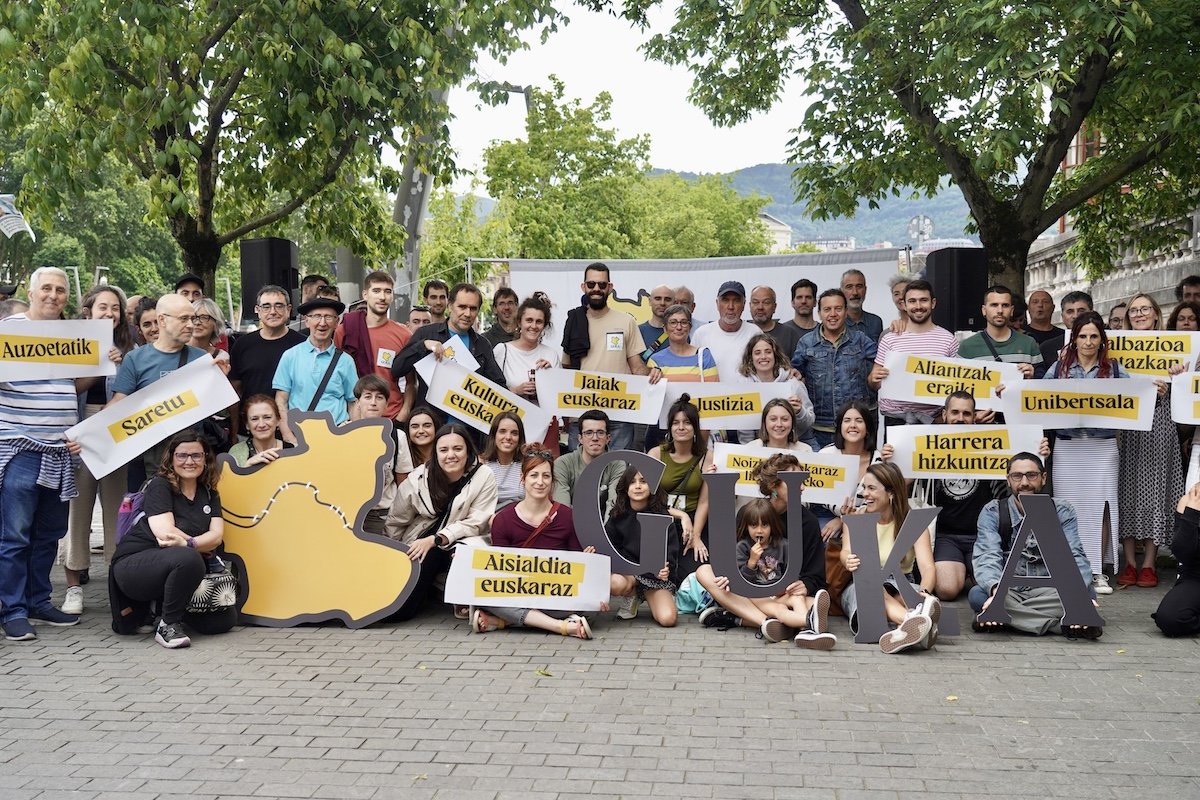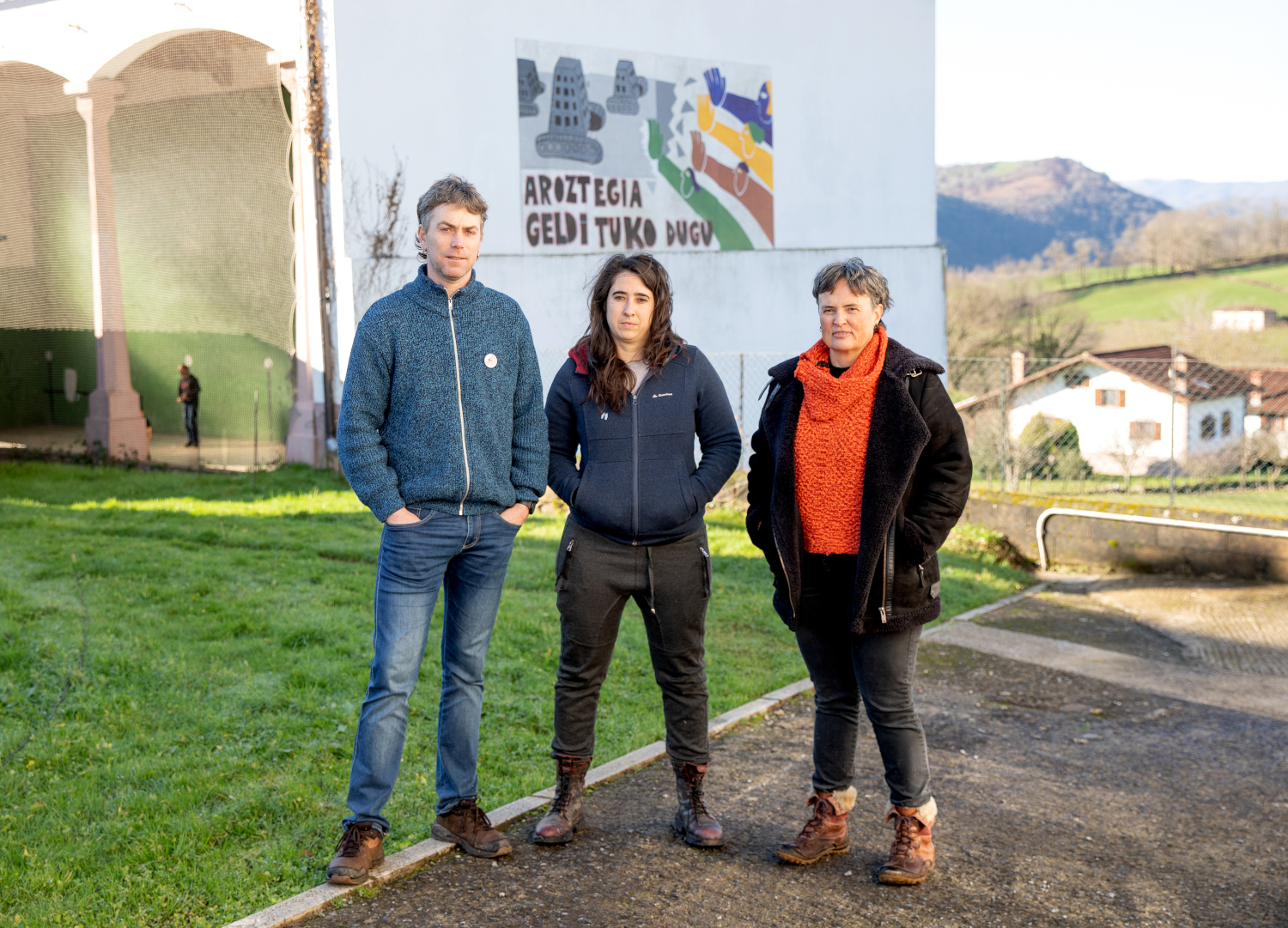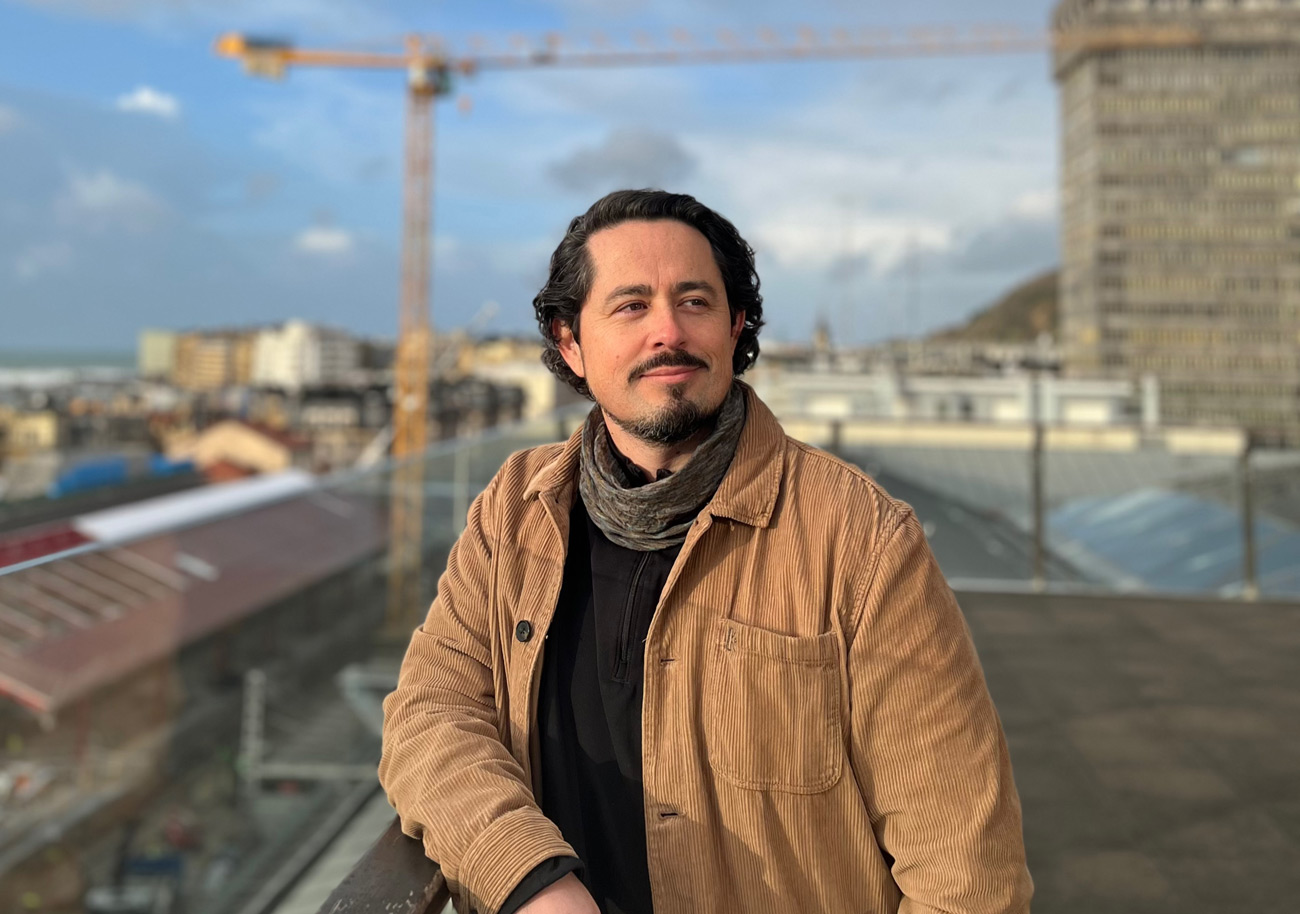The "attacks" of the state will be reaffirmed tomorrow in favour of minority languages
- Tomorrow there will be a human chain in Baiona in favour of the linguistic immersion model in which they are immersed. Events have also been organized in other regions of minority languages to denounce the government ' s attitude to the humanitarian crisis.

The three bilingual education networks and Basque cultural activity will carry out tomorrow, at 11:00, a human chain from Rene Cassin's house to the sub-prefecture. The experimentation of the model of immersion in the public school Baffair-Quieta de la capital has been carried out after the refusal of the Rectorado. Activities organised by the GHBD have also been organised in Alsace, Brittany, Corsica and Occitania, convened by the Union for the Life of Our Languages.
The reasons why representatives of the French Ministry of Education have been used indicate that all classes in the immersion model would be illegal. “If we take the words they have used, I would like to say that what we have done over the past 50 years was already illegal,” says SEASKA President Peio Jorajuria. In the end, that of the Capital is one of the blows the administration has given it. “They have attacked public immersion, but in recent years they have attacked the teaching of languages on all sides. They have given legal excuses, but it is a political attack. The change of law is useless; if it was an immersion, the immersion will follow.”
The need for solidarity between the three networks is obvious, because in order for them to be Euskaldunes tomorrow it needs everyone: “The public school must create entire speakers, and each burglar must choose in the network that wants to euskaldunize their child.” Tomorrow, therefore, the mockery of the public network, of the arrivals and of the ikastolas of Iparralde will be reunited. Last November, a dozen people met in Paris following the call of the GHBD group. “Last year we denounced the consequences of the lyceum reform. In July, they took a step further by stopping the dive, and they passed the competition in Euskera by sending the teachers to teach French. Tomorrow’s is the continuation of the mobilization, we increasingly need to work together faster.”
Same for other territories
There will not be a human chain tomorrow in Brittany, but this very afternoon the signal will be made by a press conference in the city of Kemper. The coordination of cultural structures in Breton, Kerve Breizh, has been responsible for convening the event. The reform of the Liceo and Bajo and the Diwan school of Sant-Ervlan (Saint-Herblain) have been attacked in the last days of play. Diwan, which was opened in 2016, has not been officially approved by the Academy under the Diwan Association Agreement with the Ministry of Education.
On the other hand, the reform of the Liceo has had a great impact among the students who could choose the Breton. For those who have just joined the second, the number of vasco-speakers who considered Breton as an alternative language has decreased by 40 per cent. In the bilingual section, 90% to 75%. “It’s a big problem,” says Lena Louarn, Vice-President of the Brittany region and President of the Breton Public Institution, “The Brittany Region President, Loig Chesnais-Girard, has written Mr Blanquer several times. The answer we have obtained is absolutely pure, it has not answered the question.” That is why the regional head of Brittany has decided to write directly to the French Prime Minister, Jean Castex. Louarn denounces that the State is engaged in artimañas. “All these are hidden molds that the three networks and associations have carried out to undo all the work; the elected officials have mediated with it.”
He also referred to the problems they have in the training of Breton teachers. In their opinion, they are not given a sufficient level, “with the Ministry of Education being responsible for the training in its entirety”. In addition, throughout Britain, which is very extensive in areas, there is only one public space for the training of teachers: Saint-Brieg (Saint-Brieuc).
The other is that the people's houses have a reward for spilling children. All the schools in the Diwan network do not get the prizes that for every child can be received from the villages around. “The Diwan revives for that.” It is estimated that around EUR 300,000 could be lost. “They try everywhere to choke us, and they take advantage of this diffuse period of [COVID-19], it’s very cunning.”
Jean Faivre is the representative of Alsace in the European Union for the Life of Languages. He has reported that, like that of Baiona, the human chain will be held tomorrow in Alsace, opposite the Rectorado, in Strasbourg. “We want to do it in the rectorship because the scope of teaching is symbolic. The main remnants have been from the Ministry of Education, Language Policy and Culture. We want to remind them of their responsibilities.”
In Alsace they have also transferred their anger to the Ministry of Education because of the consequences of the reform of the Lyceum. “We have in front of us a rejection,” Faivre said, “we have before us a wall of indifference with Jean-Michel Blanquer and his services. They tell us contempt.” He gave an example of this. A proof of access to university in English is requested. In Alsace, they would like it to be German rather than English. Alsace, finally, because it is the dialect of German in voice and German in writing. “For us, the language of the region is a question of integration in the geographical area of the Rhine. We are concerned not to take German as a regional language into account. It would seem that German is a foreign language, a historical language of our territory.”
It is also clear to Faivre that events are taking place in a rigid political position with the French Government. “It feels like an enemy on the part of the state. Local languages are not included in your programme. As far as Jean-Michel Blanquer is concerned, it is certain that regional languages are outside the essence of his thinking. In the DNA of that Government the issue [of languages] is viewed with mistrust.” It is therefore of great importance to him that associations and representatives of all the excited territories have met in the GHBD this year: “We were scattered and we have achieved the feat of a unitary front.”
Voter requirements
Not all levels of concern are equal among those elected from one territory to another. The neighbours of Iparralde have joined the protest in the case of the Basque Cultural Capitality. In the hope of speaking directly with the Ministry.
The unity of the elect is good news for Peio Jorajuria: “It has been great news that all the elect have formed a single front and are ready to stand against Paris. The EEP’s denunciation is a big step.” Civic mobilizations such as the human chain and the line of the elect are compatible. “The struggle of elected officials is not at the same pace as that of society. Both are necessary; we know that if we want achievements this year we will have to work on two fronts.”
The Breton Lena Louarn believes that it is time for the elected representatives of all the territories to meet. “À la carte they play differently with each other [of the state]. We should have a stronger common front among all the elected ones. The political world should become more involved in the development of languages.”
Euskal Herrian Euskarazen arabera, Tolosako tren geltokiko segurtasun agente batek eraso egin zion militante bati, agenteari euskaraz hitz egiteko eskatu ziolako. Tolosako alkateak "kezka" adierazi du eta azalpenak eskatuko dituela jakinarazi.
Otsailaren 28an Hendaian eman dio hasiera kanpainari Herri Urratsek. Euskararen transmisioa bermatzen duen Seaska babestea da helburua.
EH Bilduk sustatuta, Hondarribiako udalak euskara sustatzeko diru-laguntzetan aldaketak egin eta laguntza-lerro berri bat sortu du. Horri esker, erabat doakoak izango dira euskalduntze ikastaroak, besteak beste.
Gukak “Bilbo erdalduntzen duen makina” ikusaraziko du kanpainaren bidez. 24 orduz martxan dagoen makina salatuko dute, eta berori “elikatu eta olioztatzen dutenek” ardurak hartzea eskatuko dute. Euskararen aldeko mekanismoak aktibatzea aldarrikatuko dute.
Plazara, AEK, Uda Leku, Dindaia eta Ebete antolakundeak Baionan elkartu dira Famili'on egonaldi ibiltariaren lehen edizioa aurkezteko. Hizkuntza mailaren arabera eskaintza bat edo beste egongo da eta haur zein gurasoentzat izango da udaberrian.
Hamahiru ZirHika kide batu dira hitanoaren erabilera aldarrikatzeko eta antolakundearen ekintzen berri emateko. Azalpenak Badihardugu elkarteko Idoia Etxeberria eta Galtzaundiko Uxoa Elustondok egin dituzte. Horiei, Andoni Egaña eta Amaia Agirre bertsolariak eta... [+]
Administrazio Epaitegiak arrazoia eman dio EH Bilduk Lizarrako plantilla organikoaren hizkutnz profilen aurka jarritako helegiteari.
Ilbeltzeko igande goiz batez jo dugu Baztanera. Eguzkiak oraindik ez du Lekarozko plaza argitu; bertan elkartu gara Garbiñe Elizegi Narbarte, Itziar Torres Letona eta Ernesto Prat Urzainkirekin. Itzaletan hotz egiten du eta umorez goxatu dugu lehen agurra, hogei urtean... [+]

















.jpg)




